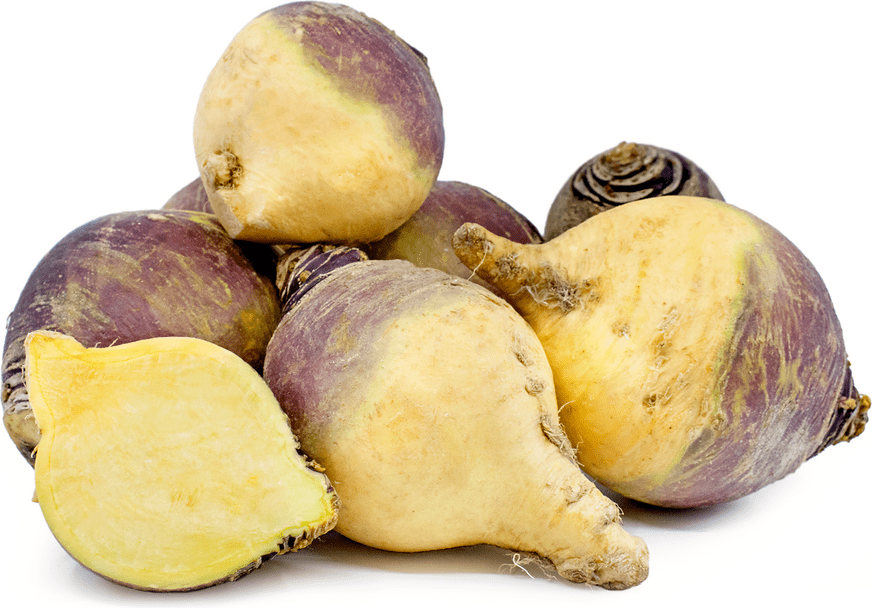When it comes to healthy eating, many people overlook rutabaga.
However, this root vegetable is packed with essential nutrients, offering a range of health benefits that make it worth adding to your diet.
Whether roasted, mashed, or added to soups, rutabaga is a versatile and delicious vegetable that supports digestion, boosts immunity, and even helps with weight loss.
In this article, we’ll explore what rutabaga is, its nutritional value, the 14 amazing health benefits of rutabaga, possible side effects, and easy ways to include it in your diet.
:max_bytes(150000):strip_icc()/__opt__aboutcom__coeus__resources__content_migration__simply_recipes__uploads__2012__11__three-rutabagas-cb567afc6cfb4697ac75c8d72ba77555.jpg)
What Is Rutabaga?
Rutabaga is a root vegetable that belongs to the Brassicaceae family, the same family as cabbage, kale, and Brussels sprouts. It is believed to be a hybrid of turnip and wild cabbage, giving it a unique taste that is both slightly sweet and mildly bitter.
Rutabaga is commonly grown in cooler climates and is a popular ingredient in Scandinavian and European cuisines.
It has a yellowish flesh and a purple or brownish skin. Many people confuse rutabagas with turnips, but rutabagas are larger and have a denser texture. They can be eaten raw or cooked, making them a great addition to a variety of dishes.
Now that we know what rutabaga is, let’s look at its powerful nutritional profile.
Rutabaga Nutrition
Rutabaga is not only delicious but also packed with essential vitamins and minerals that promote good health.

Here’s a breakdown of its nutritional value per 100 grams:
- Calories: 37
- Carbohydrates: 8.6g
- Fiber: 2.3g
- Protein: 1.1g
- Vitamin C: 25mg (42% of daily needs)
- Potassium: 305mg
- Calcium: 43mg
- Magnesium: 20mg
- Folate: 21µg
- Iron: 0.53mg
Rutabaga is low in calories yet rich in fiber, antioxidants, and essential minerals. It also contains plant compounds like glucosinolates, which have been linked to cancer prevention.
Now, let’s explore the 14 health benefits of rutabaga that make it an excellent choice for a healthy diet.
14 Health Benefits of Rutabaga
1. Strengthens the Immune System
One of the key benefits of rutabaga is its ability to boost the immune system.
This is mainly due to its high vitamin C content, which plays a vital role in increasing white blood cell production. White blood cells are the body’s first line of defense against infections, colds, and flu.
2. Supports Digestive Health
The fiber content in rutabaga is essential for digestive health. Fiber helps regulate bowel movements, preventing constipation and bloating.
Additionally, fiber acts as a prebiotic, feeding beneficial gut bacteria and improving gut health.
A healthy gut contributes to better nutrient absorption and overall digestive function, making this one of the top benefits of rutabaga.
3. Helps with Weight Loss
For those looking to maintain a healthy weight, rutabaga is a fantastic addition to meals.
It is low in calories but high in fiber, which helps you feel fuller for longer and reduces cravings. The fiber in rutabaga slows digestion, preventing sudden spikes in blood sugar that can lead to hunger.
Replacing high-calorie foods with rutabaga can be an easy way to cut down on calories while still enjoying delicious, satisfying meals.
4. Improves Heart Health
Heart health is one of the most important benefits of rutabaga. This vegetable is rich in potassium, a mineral that helps regulate blood pressure by balancing sodium levels in the body.
Additionally, rutabaga contains fiber, which can help lower bad cholesterol (LDL) levels and reduce the risk of cardiovascular diseases. Eating rutabaga regularly can promote a healthier heart and prevent conditions like high blood pressure and stroke.
5. Balances Blood Sugar Levels
One of the lesser-known benefits of rutabaga is its ability to help stabilize blood sugar levels. Unlike starchy vegetables that cause rapid spikes in blood sugar, rutabaga has a low glycemic index and is packed with fiber.
This means it slows down sugar absorption into the bloodstream, preventing sugar crashes and reducing the risk of diabetes. It’s an excellent option for people with diabetes or those looking to manage their blood sugar naturally.
6. Strengthens Bones
Bone health is another crucial benefit of rutabaga. This vegetable contains important minerals such as calcium, magnesium, and phosphorus, all of which contribute to strong and healthy bones.
Regular consumption of rutabaga can help prevent osteoporosis and reduce the risk of fractures, especially in older adults. If you want to maintain strong bones and overall skeletal health, adding rutabaga to your diet is a smart choice.
7. Enhances Brain Function
Good brain health is one of the essential benefits of rutabaga. The potassium and antioxidants found in rutabaga help increase blood flow to the brain, improving concentration, memory, and cognitive function.
Some studies suggest that antioxidants in rutabaga may even help reduce the risk of neurodegenerative diseases such as Alzheimer’s. Eating rutabaga regularly can support long-term brain health and keep your mind sharp as you age.
8. Reduces Inflammation
Chronic inflammation is linked to many serious health conditions, including arthritis, heart disease, and diabetes. One of the key benefits of rutabaga is its anti-inflammatory properties.
It contains glucosinolates and vitamin C, both of which help fight inflammation and protect the body from oxidative stress.
9. Promotes Eye Health
Good vision is another benefit of rutabaga that many people don’t realize. The vegetable is rich in antioxidants like vitamin C and beta-carotene, which protect the eyes from damage caused by free radicals.
Regular consumption of rutabaga can help reduce the risk of age-related eye disorders such as cataracts and macular degeneration. If you want to maintain sharp vision and healthy eyes, rutabaga is an excellent addition to your diet.
10. Keeps Skin Healthy and Youthful
Looking for a natural way to achieve glowing skin? One of the great benefits of rutabaga is its ability to support skin health. The high vitamin C content helps boost collagen production, keeping the skin firm, smooth, and youthful.
Collagen is essential for reducing wrinkles and preventing sagging skin. Additionally, the antioxidants in rutabaga protect against skin damage caused by pollution and UV rays.
11. Boosts Energy Levels
Another powerful benefit of rutabaga is its ability to provide long-lasting energy. Unlike processed carbohydrates that lead to energy crashes, rutabaga contains complex carbohydrates that release energy slowly throughout the day.
This makes it a great food choice for athletes, active individuals, or anyone who needs an energy boost to stay productive.
12. Detoxifies the Body
Detoxification is another impressive benefit of rutabaga. This vegetable supports liver function and helps remove toxins from the body.
The glucosinolates in rutabaga assist in breaking down harmful substances and flushing them out, leading to a cleaner, healthier system. Adding rutabaga to your diet can help your body’s natural detox processes work more effectively.
13. Supports a Healthy Gut Microbiome
A well-balanced gut microbiome is essential for overall health, and one of the overlooked benefits of rutabaga is its role in gut health.
The fiber in rutabaga acts as food for beneficial bacteria in the intestines, promoting a healthy balance of gut flora. A healthy gut contributes to better digestion, improved immunity, and even better mental health.
14. May Help Prevent Cancer
One of the most exciting benefits of rutabaga is its potential role in cancer prevention. The vegetable is packed with glucosinolates, sulfur-containing compounds that have been studied for their cancer-fighting properties.
These compounds help detoxify harmful substances in the body and may slow the growth of cancer cells. While more research is needed, including rutabaga in your diet could provide natural protection against certain cancers.
Rutabaga Side Effects
While rutabaga is generally safe to eat, some people may experience mild side effects:
- Gas and bloating: Due to its high fiber content, rutabaga may cause gas in some individuals.
- Allergic reactions: Although rare, some people may have an allergic reaction to rutabaga.
- Thyroid concerns: Rutabaga contains goitrogens, which may interfere with thyroid function when consumed in excessive amounts. People with thyroid conditions should eat it in moderation.
Rutabaga Recipes
Now that you know the benefits of rutabaga, here are some tasty ways to enjoy it in your meals:
1. Mashed Rutabaga
A delicious alternative to mashed potatoes!
- Peel and chop rutabaga into cubes.
- Boil until soft, then mash with butter, salt, and black pepper.
- Add garlic or herbs for extra flavor.

2. Roasted Rutabaga
A crispy and flavorful side dish.
- Cut rutabaga into cubes and toss with olive oil, salt, and rosemary.
- Roast in the oven at 400°F (200°C) for about 30 minutes until golden brown.

3. Rutabaga Soup
A warm and comforting meal.
- Sauté onions and garlic, then add chopped rutabaga and vegetable broth.
- Simmer until soft, then blend into a creamy soup.




